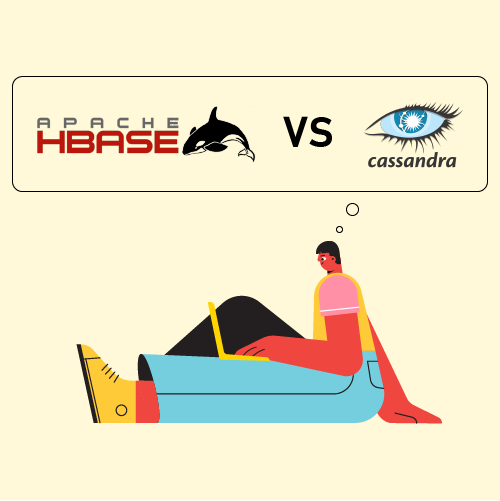- Which Is Better Go Or Rust?
- Go vs Rust: Performance
- Go vs Rust: Memory Management
- Go vs Rust: Development Speed
- Golang vs Rust: Concurrency
- Rust Programming Language
- Advantage of Rust language:
- Disadvantage of Rust language:
- What Is Rust Best Used For?
- Go Programming Language Review
- Advantage of Go Language:
- Disadvantage of Go Language:
- Why Should You Use Go And When To Use Golang?
- Comprehensive
- Quick
- Portable
- Conclusion
- Choose Rust when:
- Choose Go when:
- FAQs About Go vs Rust
If you had to make a list of top programming languages that appeared in the industry in the past decade, the two names that would emerge would be Go and Rust.
And, if you had to sit down and think of the programming languages which were best aligned with the motive to develop secure, microservice favoring frameworks and custom web application development services, you would again find yourself staring at the two languages.
Even after being similar in some prominent ways like maturity, being open source, and being designed for microservice oriented, modern, parallel computing environments, there is a lot of confusion around Go vs Rust and which of the two languages are good for the developer community to enter into.
The intent of this article today is to look into the difference between Go and Rust in much detail. The differences that go beyond Rust use cases and Golang use cases and answers questions related to- What is Golang good for? How to get rust to run better? Why use Golang? How to get rust to load faster? Why use go programming language? When to use Rust language? When to use Go programming language? And much more.
Let us answer Which is better?
Which Is Better Go Or Rust?
Go vs Rust: Performance
When asked how to run rust better or how to get rust to run better, the one factor that weighs up Rust in the Golang vs Rust debate is performance. The programs have been designed to run at similar or near similar speed of C++ and C.
Go, on the other hand, trade runtime speed for convenience, by making tasks automatic. But in terms of Rust vs Golang Performance comparison, development speed of Go falls several steps behind the high performance that Rust offers.
Go vs Rust: Memory Management
In Rust vs Go performance, Rust performance make use of compile time ownership strategy for memory management through zero cost abstractions. If a Rust code is not memory safe, it won’t be able to cross the compilation stage.
Like Rust, Go is also memory safe. But in the case of Go, it is handled automatically during the runtime. Meaning, developers won’t have to think of releasing or allocating memory when writing rust code.
Go vs Rust: Development Speed
At times, the development speed becomes more important than the program speed. A working example of this can be seen in the case of Python, which is not one of the fastest languages to run but fastest to write a software in.
In Rust vs Go speed, Go comes with the same appeal. The simplicity and directness that it offers makes it faster than a number of languages in the market.
Rust, on the other hand, comes with more language features and thus takes longer to master. Its compile speed is also longer than Go’s. So, if the intent is of faster full cycle app development services, you would be better off with Go than Rust.
Golang vs Rust: Concurrency
Modern day apps are distributed and networked. The languages that haven’t planned for these realities are far off behind the curve. The solution to the query how to run rust better and go faster is on the developers. The developers have to be able to run the tasks independently and share state between the tasks minus the risk of data corruption.
Now while concurrency was built into Golang’s syntax from beginning, Rust recently gained the native syntax in the form of async/.await. But even though the concurrency of Rust lacks the developer experience that went behind Go, it makes up for it through Rust’s memory safety.
After getting to know the part where we look into how they stack up against each other, let us now refresh the basics of both the programming languages.
Rust Programming Language
Rust language came into existence back in 2010. Deemed as one of the ML languages’ extensions, the aim that the language was expected to fulfill was better security, rust performance, improved parallelism, and greater modularity.
The Rust experience system and feature set that Rust comes with has brought it to a stage where there are very few developers who haven’t heard of it or as showing an unwillingness to work in it.

Advantage of Rust language:
- Amazing run speed
- Rust dramatically increase performance
- Enables fine grain features
- Interoperable with C, and FFI
- Zero-cost abstraction
- Predictable runtime behaviour
- Saves crashing, debugging time.
Disadvantage of Rust language:
- Learning Rust is steeper than Go
- Between Go vs Rust, it is slow to compile
- It is slower than the C and C++ language in the analogous conditions.
What Is Rust Best Used For?
Rust is the sort of programming language that one can utilize almost everywhere. In any case, a few spots are better qualified for it than others.
For instance, in light of its high quality Rust performance and zero-cost deliberations, framework programming is one field where rust dramatically increase performance and flourishes. Frameworks programmers are a type of engineer who works intently on the hardware side of improvement.
Since Rust programming language takes some motivation from C++, it’s not astounding that the language would have some center level abilities. Middle level languages are the deft and opportunistic trade-off between low-level and high-level languages.
They’re frequently used to make working frameworks or computer applications as they can deal with the degree of intricacy it takes to oversee memory on the equipment side of things. But, regardless of the absence of thought, they’re as yet readable by the human eye, which is uncommon to discover in machine code.
In spite of the fact that there is some dispute in the developer community regarding what considers as a center level language or not, Rust is perceived for being an advanced language with machine-oriented possibilities.
Go Programming Language Review
Go coding language was introduced back in 2007 by Google. It was looked at as a language that had emerged to solve the issues that organizations face when developing software infrastructure. The Go language specification was devised to introduce garbage collection, dependency management, built-in concurrency, robustness across multiple boundaries between the components, etc.
To answer the question, why use golang, let’s read further. The result of the well thought of features of Go has gotten it a market position which is enough to bring it several points ahead in the Go vs Rust debate.

Advantage of Go Language:
- The best feature of Go language is the incredible speed at which it compiles to machine code.
- The simplicity of code
- Concise, pragmatic, and efficient
- Flexible and highly concurrency favoring
- Strong interoperability with C language.
Disadvantage of Go Language:
- Keeps simplicity over Golang performance
- Lacks the generics to an extent
- Not enough immutability
- Not a system language.
Why Should You Use Go And When To Use Golang?
Comprehensive
If you are thinking about what is golang good for, then read further as the Go language is fully comprehensive and ready to rock with its tools to its libraries to its documentation. But jokes apart, Go is equipped with broad documentation, convenient tooling, and minimal dependencies.
GoDoc – a Go package that obtains and produces documentation while you code – merits an exceptional shoutout.
Quick
A significant number of the features add to Golang performance that explains our doubts on why use Golang? Specifically speed that is conceded through garbage assortment, quick compilation, and simultaneousness in addition to other things is likely the Go’s characterizing feature.
Benchmarks show that Go can perform as much as multiple times quicker than Python in certain spaces. Go is regularly quicker than Java also.
Portable
Go programming language review is that it can be arranged pleasantly and flawlessly on multiple platforms. No more catching over what working framework to run due to compatibility issues.
FAQs About Go vs Rust
- Why use Golang and not Rust?
The answer to this would be in when and not why. You should go with Golang when – you have to write code faster when simplicity is a bit more important than performance, and when readability is a must have necessity.
2. What does Go and Rust have in common?
There are some prevalent similarities between Go web development and Rust in Go vs Rust web development, mostly in terms of the maturity and the fact that both: the programming features of Rust and Go are open source and have been designed for microservice oriented, modern, parallel computing environments.
3. Is Go faster than Rust?
Yes. Speed is one of the biggest differences between Rust vs Golang – a difference which is won by Go.
Conclusion
We could keep digging into both the languages, dissecting both sides of Go vs Rust web development, but the ultimate answer to the Rust and Go comparison would be the fact that it depends. There are instances where Rust is better than Go due to the rust experience system and vice versa.
Ultimately, this is what we recommend as a web application development company, who works on both why use golang and rust –
Choose Rust when:
- If rust web server performance is a necessity
- If you want it to interoperate with the C language.
- When your developers need control on every detail of how the threads behave with the rest of the system, how the errors must be handled, it would be better to look into Rust web server performance use cases.
Choose Go when:
- If readability is a must have requirement
- If you wish to write codes faster
- If the focus is on uniformity and simplicity.
If your doubts are clear regarding the Rust vs Go performance then you might need assistance for your web app development and for understanding the future of Rust programming language or rust experience system you might need to consider Appinventiv as a reliable and trustworthy web application development company in USA. We at appinventiv have expertise in building world class Android apps and have developed a number of apps that have created new milestones.
FAQs About Go vs Rust
Q. Why Go and not Rust?
The answer to this would be in when and not why. You should go with Golang when – you have to write code faster, when simplicity is a bit more important than performance, and when readability is a must have necessity.
Q. What does Go and Rust have in common?
There are some prevalent similarities between Go web development and Rust in Go vs Rust web development, mostly in terms of the maturity and the fact that both: the programming features of Rust and Go are open source and have been designed for microservice oriented, modern, parallel computing environments.
Q. Is Go faster than Rust?
Yes. Speed is one of the biggest differences between Go and Rust – a difference which is won by Go.




Which Mobile Platform Should Startups Choose in 2021: Android Or iOS?
Back in 2008, the iOS App Store was launched with 500 apps. Today that number has skyrocketed to 1.85 million apps that are available for users to download. Android users have a bigger app universe to browse from that consists of over 2.56 million apps available in the Google Play Store. It is safe to…

Kotlin vs Scala: Choose Right JVM Language for App Developers
“The folly of one man is the fortune of another” As quoted by Francis Bacon, meaning, ‘One man’s misery or misfortune is the fortune of another.’ This saying has become true for the JVM world. With the fall of Java – the programming language that entered the market in 1995 and changed the complete story,…

HBase vs Cassandra: Which is Better of the Two NoSQL Databases?
Selecting the best database management system is the key to ensure effective, streamlined app development process and a successful end outcome. However, choosing an ideal system for a project is not very easy for there are always a number of details to be considered at every turn. Especially when it impacts the performance of your…
















